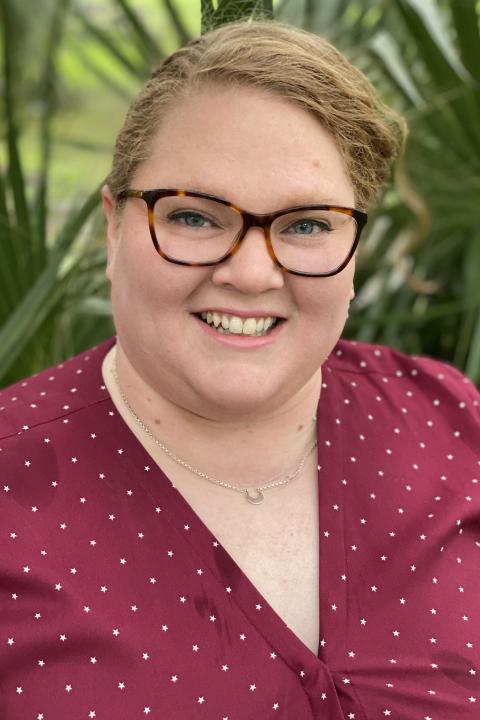
Katie Godshall
Dr. Katie Godshall, DSW, LCSW, is an Assistant Clinical Professor at University of New Hampshire's Department of Social Work. A two-time graduate of Tulane University's School of Social Work, she earned her MSW with a certificate in disaster mental health (2010) and the Doctor of Social Work (DSW) (2019) before accepting a position with UNH. A seasoned practitioner and educator, Dr. Godshall's expertise lies in trauma and crisis response, and resilience. Her main focus is providing wellness support and research for public safety personnel by applying somatic and biofeedback interventions through translational research. She has received funding for research and practice-based initiatives, training programs, and workforce development grants. Recently, Dr. Godshall was recognized as one of the Union Leader's 2025 40 under 40 cohort. In addition to teaching and mentoring students, she maintains an active practice and contributes to the development and growth of wellness programs in police departments, fire/ems departments and the formalization of Police Social Work across New Hampshire. Dr. Godshall also provides consulting support for programmatic support of community-based programs such as the Adverse Childhood Response Team (ACERT) program in Seabrook, NH. Dr. Godshall serves as a clinician with the Seacoast Critical Incident Stress Management (CISM) team.
Courses Taught
- INCO 590: Student Research Experience
- SW 622: Social Work Practice
- SW 831: Social Work Practice II
- SW 871: Trauma-Informed Pr in Schools
- SW 931: Adv Generalist Practice IV
- SW 952: HBSE III
Education
- D.S.W., Tulane University
- M.S.W., Tulane University
- B.A., Social Work, Saint Francis University
Research Interests
- Crisis Counseling
- Crisis decision making
- Disasters
- Disasters - Recovery
- Disasters - Response
- Emotional/Mental Health
- Trauma
- Traumatic Stress Disorders
- Social/Behavioral Science Planning/Policy
- Social Services
- Advocacy (Political/Social)
- BEHAVIORAL/SOCIAL SCIENCES
- Death and Dying, Behavioral/Social
- Social activism
- Social Change
- Social identity
- Social justice
- Social work
- Resilience
- Suicide
- Law enforcement
Selected Publications
Godshall, K. C., Cross Hansel, T., & Brewer, K. (2024). Exploring Teen Suicide Rates through the Lens of Macro Risk Factors.. Soc Work Public Health, 39(4), 313-322. doi:10.1080/19371918.2024.2324145
Zajac, C., & Godshall, K. C. (2020). Empowerment through Accessibility: Community Needs Assessment Data for LGBTQ Communities.. Soc Work Public Health, 35(6), 483-493. doi:10.1080/19371918.2020.1798322